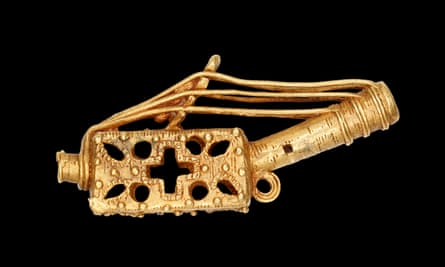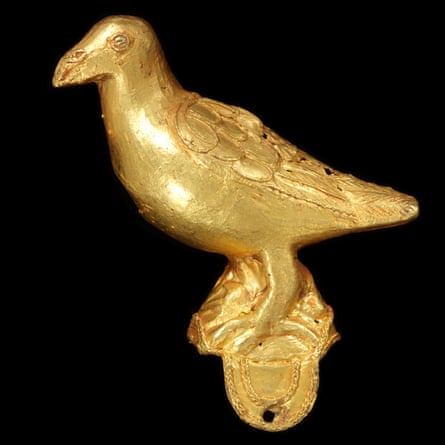The British Museum and the Victoria and Albert Museum have declared that they will be loaning gold and silver treasures taken from west Africa by the British army during colonial wars to Ghana for a period of three years.
The valuable ceremonial objects that once belonged to the Asante royal court are considered a vital part of Ghana’s identity. As part of an agreement, 17 items from the V&A and 15 from the British Museum will be displayed at the Manhyia Palace Museum in Kumasi, the capital of the Asante region, later this year. Some of these artifacts have not been viewed in Ghana for 150 years.
Greece has once again requested for the Parthenon marbles to be given back to Athens, as news of a new agreement has been announced.
Most of the objects involved in the Ghana deal with Otumfuo Osei Tutu II, the current Asante king, were looted from Kumasi during Anglo-Asante wars in the 19th century. Some formed part of an indemnity payment forcibly extracted from the asantehene (king) at the time. But they also include a gold lute-harp that was presented to the British diplomat Thomas Bowdich during a trade treaty in 1817.

Nana Oforiatta Ayim, a special adviser to Ghana’s culture minister, welcomed the deal as a “good starting point” in righting the wrongs of the UK’s violent colonial past.
In an interview with the BBC, as reported by the publication first, she explained, “These items hold not only physical value but also spiritual significance. They represent a crucial aspect of our nation’s identity and serve as a return of ourselves.”
Ayim characterized the agreement as a symbol of healing and remembrance for the violence that occurred.
The director of the V&A, Tristram Hunt, referred to the objects as our most valuable possessions, similar to our crown jewels.

He stated that after one hundred and fifty years since the invasion of Kumasi and theft of court treasures, the V&A is pleased to collaborate with the Manhyia Palace Museum in showcasing this significant collection of Asante gold artifacts. As a demonstration of our dedication towards sharing collections with a colonial history, we are thrilled to witness these pieces being exhibited to the public in Ghana, as part of the silver jubilee festivities of Asantehene Otumfuo Osei Tutu II.
Legislation prohibits major museums in the UK, such as the British Museum and V&A, from permanently returning disputed treasures in their collections. These items include the Parthenon sculptures, which Greece has been advocating to be returned to Athens, the Benin bronzes, which Nigeria has also requested to be returned, and the Asante gold.
Hunt stated that the agreement with the monarch, which has the potential for renewal, was not a form of compensation through indirect means.
He stated, “It is our duty to consider how we can distribute these resources more equitably among the countries they originated from. It does not seem logical that our museums will suffer if we establish partnerships and exchanges.”
Last Thursday, the prime minister of Greece, Kyriakos Mitsotakis, once again urged for the return of the Parthenon marbles following a previous disagreement with the UK government.
Mitsotakis recently made his first public statement about the matter since November. He revealed that Greece has been discussing a potential agreement with George Osborne, the chair of the British Museum, to have the artifacts displayed at the Acropolis Museum.
He stated that they will strongly advocate for their reunification for various reasons. However, the most significant reason, in his opinion, is that only by being observed together in their original location near the Acropolis can we fully comprehend their immense cultural significance.
Source: theguardian.com


















